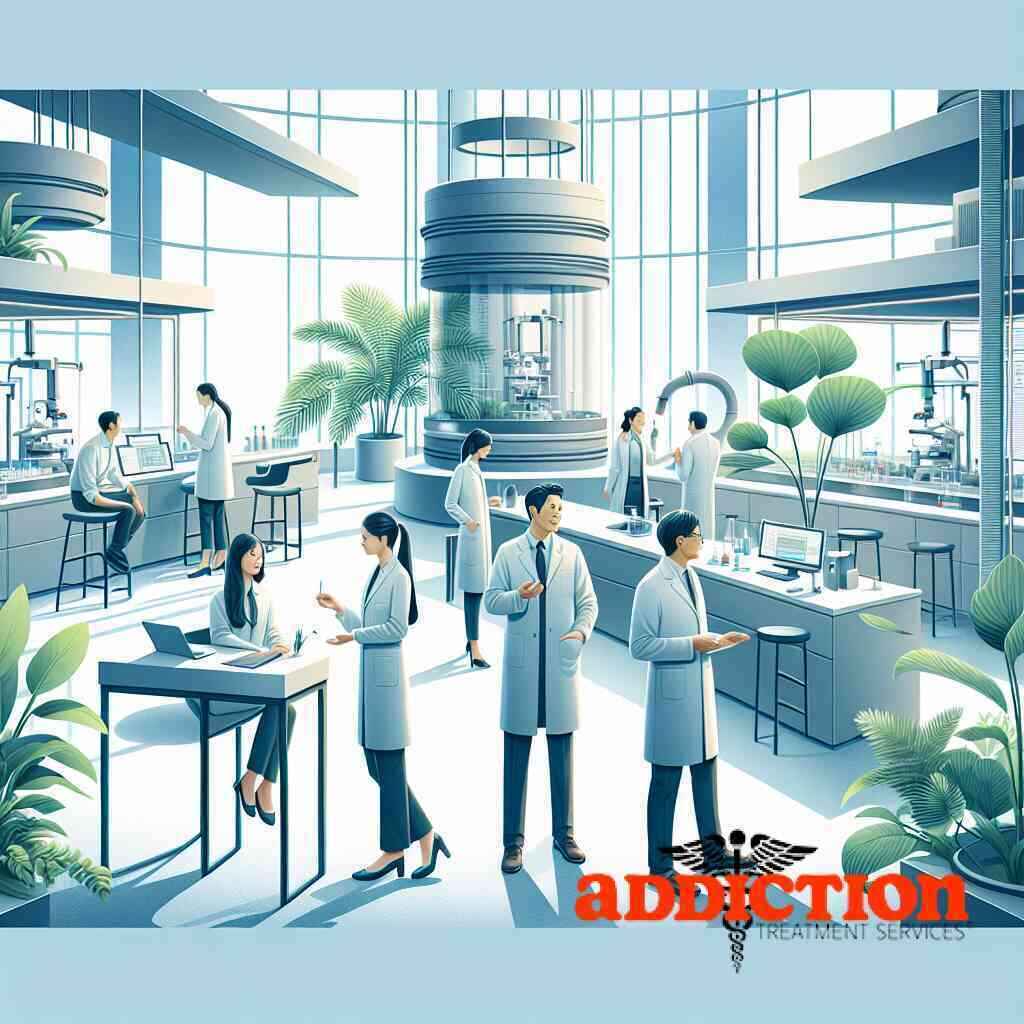 Posted On: 10/30/2024
Posted On: 10/30/2024An Introduction to the World of Drug Testing
Understanding Substance Detection and Drug Metabolites
In contemporary society, understanding substance detection is essential. Drug metabolites play a crucial role in the detection of illicit substances, as they are chemical byproducts formed when the body metabolizes a drug. The 5 panel drug test is widely utilized for its efficiency in screening common substances such as THC, opiates, PCP, cocaine, and amphetamines. Each of these substances leaves behind unique metabolites that can be detected in biological samples, such as urine or blood. Detecting these metabolites accurately requires a deep understanding of pharmacokinetics and the biochemical pathways involved in drug processing.
The Pivotal Role of Drug Screening in Today’s Society
Drug screening is pivotal in many aspects of modern society, from workplace safety to legal requirements. It acts as a preventative measure against drug abuse and helps maintain safe environments, especially in industries where safety is paramount, like transportation and healthcare. Role of Drug Testing in Workplace Safety By utilizing drug screening, employers can ensure a level playing field, fostering trust and transparency among employees. It’s a tool not only for detecting drug use but also for advocating for necessary rehabilitation resources to support individual recovery journeys.
Connecting Addiction Treatment Services with Workplace Drug Testing
Addiction Treatment Services play a significant role in assisting individuals through the recovery process, bridging the gap between drug detection and treatment. When an individual tests positive for illicit substances, it can often be a catalyst for seeking help and support. Services like Addiction Treatment Services in Georgia offer immediate resources for those in need of guided interventions and comprehensive detox strategies. This connection fosters a supportive network where workplace drug testing becomes the first step toward recovery and well-being, ensuring that individuals have access to mental health services and comprehensive addiction recovery resources.
Decoding the 5 Panel Drug Test
What is a 5 Panel Drug Test?
A 5 panel drug test is a standardized screening process employed to detect the presence of commonly abused substances. This type of drug test evaluates biological samples, mainly urine, for traces of THC, opiates, PCP, cocaine, and amphetamines. These substances are selected for their prevalence in substance abuse cases and their potential impact on safety and performance in various environments. Within workplace settings, the 5 panel drug test is commonly used due to its comprehensive nature and its ability to provide quick, accurate insights into an individual’s recent drug use, thus aiding in maintaining a drug-free workplace.
The 5 panel drug test is central to both preventive measures and early interventions in substance misuse scenarios. It can play a crucial role in pre-employment screening processes, ensuring that prospective employees meet the necessary standards for safety and productivity. The widespread adoption of this test in workplaces reflects its reliability and efficiency, making it an indispensable tool in modern occupational health strategies.
Analyzing the Specific Substances Tested: THC, Opiates, PCP, Cocaine, and Amphetamines
The 5 panel drug test is specifically designed to detect five key substances, each leaving distinct metabolites detectable through urine analysis. THC-the psychoactive component in marijuana notorious for its prolonged presence in the body, potentially detectable days or weeks after use. Opiates, encompassing substances like heroin and morphine, have a range of medical and illicit uses, making their detection vital in distinguishing misuse.
PCP, or phencyclidine, is a synthetic drug known for its hallucinogenic effects and potential to cause psychological disturbances. Cocaine is another powerful stimulant, affecting the brain by increasing levels of dopamine, leading to its high potential for addiction. Lastly, amphetamines are potent stimulants that have legitimate medical uses but are also abused for their energizing effects and potential to enhance performance. Understanding the Use of Stimulants and Their Impact
With these substances accounting for significant portions of drug abuse statistics, the 5 panel drug test serves as a critical tool in identifying usage and prompting appropriate responses or interventions, such as connecting individuals with relevant addiction treatment services.
Why Choose a 5 Panel Drug Test? Efficiency and Practicality in Substance Detection
The decision to utilize a 5 panel drug test stems from its dual benefits of efficiency and practicality. It offers a cost-effective means to conduct broad screenings without unnecessary complexity typically associated with more extensive testing panels. For many employers, this test strikes a perfect balance, providing essential insights while minimizing testing costs. Questions like How Much Does A Drug Test Cost? can be pivotal in choosing the right screening for workplace needs.
Operational efficiency is key, as the test rapidly delivers results, allowing for timely decisions regarding employment or compliance with necessary safety standards. Furthermore, its practicality is showcased in diverse environments, from corporate offices to manufacturing plants, where maintaining a drug-free environment is vital. By choosing a 5 panel drug test, organizations invest in a straightforward, reliable means of promoting health and safety, aligning with broader societal goals of reducing substance abuse and fostering recovery avenues.
The Mechanisms Behind Drug Testing Procedures
Exploring the Drug Testing Labs and Their Protocols
Drug testing labs are the frontline in the battle against substance abuse, employing rigorous protocols to ensure accuracy and reliability. These labs use advanced analytical methods, such as gas chromatography-mass spectrometry (GC-MS) and liquid chromatography-tandem mass spectrometry (LC-MS/MS), to identify and quantify drug metabolites in biological samples. Strict chain-of-custody procedures are implemented to maintain the integrity of samples, ensuring that no tampering or contamination occurs during analysis. From sample collection to result reporting, every step is meticulously documented, safeguarding the test’s credibility. Drug Testing Methods and Their Accuracy These protocols form the backbone of drug testing labs, providing confidence that the results are both accurate and admissible in various contexts, from workplace decisions to legal matters. Legal Considerations for Drug Testing
Understanding Drug Test Cutoff Levels and Adulteration Detection
Drug test cutoff levels are critical in determining whether a sample is positive or negative for substance use. These levels represent the threshold above which the presence of a drug metabolite indicates significant use, as opposed to incidental contact or contamination. Setting appropriate cutoff levels is crucial to balancing sensitivity with specificity and minimizing false positives and negatives. Adulteration detection is equally pivotal, with labs employing sophisticated checks to identify any attempts to alter or mask test results. Techniques such as checking the sample’s temperature, pH, and specific gravity help in detecting diluted or tampered samples. By ensuring the integrity of the results, laboratories uphold the trust placed in them to deliver fair and accurate assessments of drug use.
From Pre-Employment Screening to Post-Accident Testing: A Comprehensive Overview
Drug testing serves multiple purposes across various scenarios, from pre-employment screenings to post-accident investigations. Pre-employment screenings act as a preventative measure, ensuring that potential hires meet the company’s standards for a drug-free workplace. Random drug tests can further enforce this standard, deterring ongoing use among current employees. Meanwhile, post-accident testing can be crucial in understanding the factors contributing to workplace incidents, helping to enhance safety protocols. Each type of test fits into a broader framework of workplace safety and compliance, which often aligns with DOT standards and other regulatory requirements. This comprehensive approach to drug testing illustrates its critical role in maintaining a safe and productive work environment, highlighting the importance of selecting the right test at the right time.
The Implications of a Drug-Free Workplace

Balancing Employee Privacy with Workplace Safety
Balancing employee privacy with workplace safety is a critical consideration for any organization implementing drug testing. While maintaining a drug-free workplace is essential for safety and operational efficiency, it must be balanced with respecting employee rights. This can be complex, as organizations are tasked with being transparent about drug testing policies and ensuring tests are conducted in a manner that respects individual privacy. Policies must clearly communicate the purpose and methodology of testing, emphasizing safety to foster trust and cooperation from employees. By maintaining open lines of communication and ensuring employees understand how their data will be used and protected, companies can achieve a balance that respects privacy while promoting a safe working environment.
Navigating the Legalities and Ethics of Drug Testing
The legalities and ethics surrounding drug testing present a multifaceted landscape that organizations must navigate carefully. Local, state, and federal regulations, such as the DOT standards, guide the legal framework within which drug testing must occur. Ethical considerations also arise, particularly concerning the potential stigma attached to positive test results. Companies must implement drug testing policies that are not only compliant with laws but also ethically sound, ensuring that testing is conducted fairly and without discrimination. Providing clear, concise explanations of testing policies and their legal basis helps mitigate concerns and reinforces the company’s commitment to legal and ethical standards. Understanding the implications of failing a drug test is also crucial, with employers offering support for recovery rather than punishment.
Promoting Mental Health Services through Comprehensive Drug Testing Programs
A comprehensive approach to drug testing can support mental health services by identifying individuals who may benefit from additional assistance. Drug testing programs that include post-test support options demonstrate a commitment to employee well-being beyond mere compliance. Such programs can facilitate connections to mental health services, guiding individuals toward resources that address underlying issues contributing to substance use. By integrating testing with additional support mechanisms such as Narcotics Anonymous Meetings, organizations not only uphold workplace standards but also actively contribute to the holistic care of their workforce. This approach fosters resilience and recovery, positioning companies as allies in their employees’ wellness journeys and creating a supportive environment conducive to both safety and personal development. Recovery Support Services in Texas
Bridging Drug Testing with Recovery Support Services
The First Step: Connecting Drug Screening to Larger Treatment Programs
Drug screening often serves as a crucial first step in identifying the need for more comprehensive treatment programs. Once drug use is detected, it sets the stage for evaluating the appropriate path forward in addiction recovery. Connecting individuals to addiction treatment services after a positive test allows for a seamless transition from identification to intervention. Addiction Treatment Services in Tennessee offer tailored pathways that address specific needs uncovered during initial screenings. Integral to the process are detailed assessments that determine the extent of substance abuse and the corresponding level of care required. By immediately linking testing results to available treatment programs, individuals are provided with structured opportunities to commence their recovery journey effectively.
From Intensive Outpatient Programs to Residential Treatment: Pathways to Recovery
The continuum of care in addiction treatment encompasses various modalities, from intensive outpatient programs to residential treatments. After a drug test indicates substance use disorder, selecting the right program becomes key. Intensive outpatient programs offer flexible schedules for individuals to receive support while maintaining daily responsibilities. On the other hand, residential treatment provides a more immersive environment, offering 24/7 care and a structured approach to therapy. These pathways support the diverse needs of individuals combating addiction by providing customized, holistic care. Facilities like Addiction Treatment Center: Reco Intensive excels at offering these tailored options and ensures patients receive the most suitable treatment. Ultimately, the aim is to provide a bridge between initial diagnosis and long-term recovery, allowing individuals to navigate their personal recovery paths effectively.
Addressing Substance Abuse and Support Systems for Sustainable Recovery
Addressing substance abuse requires a robust framework of support systems beyond initial treatment interventions. Sustaining recovery is a multifaceted endeavor that extends into long-term planning, incorporating relapse prevention and continuous support mechanisms. Following initial treatment, engaging with support groups such as Alcoholics Anonymous Meetings can offer ongoing peer support essential for lasting change. Furthermore, comprehensive aftercare plans integrate resources tailored to assist individuals as they reintegrate into daily life, facing triggers and challenges with resilience. These support systems must adapt to individual progress, providing unwavering guidance throughout the recovery process. Collaboration between drug screening, treatment facilities, and community resources forms a network empowering individuals to achieve and maintain sobriety sustainably, reaffirming the critical role of integrated care in overcoming substance misuse.
Conclusion: The Future of Drug Testing and Addiction Recovery
Innovations in Drug Testing Technologies
The landscape of drug testing is evolving rapidly, driven by technological advancements that promise to enhance accuracy and efficiency. Innovations such as instant testing kits and non-invasive sampling methods are becoming more prevalent, providing quicker and less intrusive alternatives to traditional tests. These advancements help streamline the drug detection process, reducing the time between testing and results while maintaining high accuracy levels. Additionally, the development of digital platforms for remote testing could revolutionize accessibility, offering real-time data and analytics. As these technologies mature, they hold the potential to redefine how workplaces implement drug testing, ensuring more reliable outcomes and streamlined procedures.
The Crucial Role of Addiction Treatment Services in Shaping Drug-Free Environments
Addiction Treatment Services play a pivotal role in shifting paradigms toward healthier, drug-free environments. By bridging the gap between testing and treatment, these services ensure that individuals receive the necessary support following a positive drug test. With a nationwide presence, services like Addiction Treatment Services in Louisiana provide comprehensive resources designed to address substance use disorders holistically. They offer a directory of treatment options personalized to meet individual needs, from outpatient care to intensive residential treatment. These services are instrumental in fostering environments that not only reduce substance abuse but also promote recovery and long-term wellness.
Emphasizing the Importance of Early Intervention and Relapse Prevention
Early intervention is crucial in effectively addressing substance abuse, and employing a proactive approach can significantly alter recovery outcomes. With systems in place for timely screening and identification, individuals can access necessary resources before issues escalate. Relapse prevention is also integral to sustained recovery, involving structured support systems and continuous care pathways. Programs tailored to prevent relapse, such as those offering cognitive-behavioral therapy and peer support groups, are vital components of sustainable recovery plans. By focusing on these aspects, the addiction treatment community not only addresses immediate concerns but also promotes resilience. Resources like Top Techniques for Recovery After Relapse highlight strategies to maintain sobriety, showcasing the vital link between early intervention and lasting health.
Frequently Asked Questions
Question: How does the 5 panel drug test help ensure a drug-free workplace?
Answer: The 5 panel drug test plays a crucial role in maintaining a drug-free workplace by screening for commonly abused substances such as THC, opiates, PCP, cocaine, and amphetamines. This test is particularly valued for its efficiency in detecting these substances through urine analysis, which helps identify drug use among employees. By implementing regular drug screening procedures, employers can promote a safe and productive work environment. This not only enhances workplace safety but also aligns with regulatory standards like DOT compliance, making 5 panel drug tests an indispensable tool in workplace drug testing strategies.
Question: What substances are detected in a 5-panel drug test,, and why is it often used in employment drug testing?
Answer: A 5 panel drug test is designed to detect the presence of five major substances: THC, opiates, PCP, cocaine, and amphetamines. These substances are targeted due to their high prevalence in drug abuse cases and their potential impact on safety and performance in the workplace. Employment drug testing utilizes this type of screening as it is comprehensive yet cost-effective, providing employers with key insights into an individual’s recent drug use. This helps in pre-employment screening and during random or post-accident testing, ensuring only drug-free employees are part of the workforce, thus maintaining a safe environment.
Question: In the blog post “What Is A 5 Panel Drug Test?”, how is the connection made between drug testing and addiction recovery?
Answer: In the blog titled “What Is A 5 Panel Drug Test?”, the connection between drug testing and addiction recovery is highlighted through the integration of drug screening with addiction treatment services. What Is A 10-Panel Drug Test? When an individual tests positive in a 5 panel drug test, it acts as a crucial point of intervention, prompting connections to treatment facilities and addiction recovery services. Finding the Best Addiction Treatment Services Near Me Establishments like Addiction Treatment Services offer pathways from screening to comprehensive recovery programs, including outpatient and residential treatment. The Difference Between Outpatient and Residential Care This ensures individuals not only receive immediate support but also have access to holistic care resources crucial for overcoming substance misuse, thereby promoting sustainable recovery.
Question: Can the results of a 5 panel drug test be trusted when assessing potential substance misuse in employees?
Answer: Yes, the results of a 5 panel drug test can be trusted for assessing potential substance misuse in employees. These tests are conducted with rigorous protocols in drug testing labs, utilizing advanced analytical methods like gas chromatography-mass spectrometry to ensure accuracy. They include measures to detect sample adulteration and maintain the integrity and reliability of test results. This rigorous approach provides employers with confidence in the results, which is crucial for making informed decisions regarding employment or necessary safety measures. Addiction Treatment Services emphasizes the credibility of these tests in fostering drug-free workplaces, providing not just detection but also a bridge to recovery services when needed.
Question: Why is early intervention and access to addiction treatment services important after a positive 5 panel drug test?
Answer: Early intervention and access to addiction treatment services are critical following a positive 5 panel drug test because they facilitate timely responses to identified substance misuse. By acting promptly, individuals can be guided to appropriate addiction recovery services, preventing further substance use issues. Addiction Treatment Services offers immediate links to extensive treatment programs, such as intensive outpatient programs or residential care, tailored to address the severity and specifics of each case. This proactive approach not only supports individuals in beginning their recovery journey but also helps in reducing broader societal impacts of drug abuse, reinforcing the importance of integrated care and support systems in achieving long-term recovery. How to Navigate the Addiction Recovery Process?



